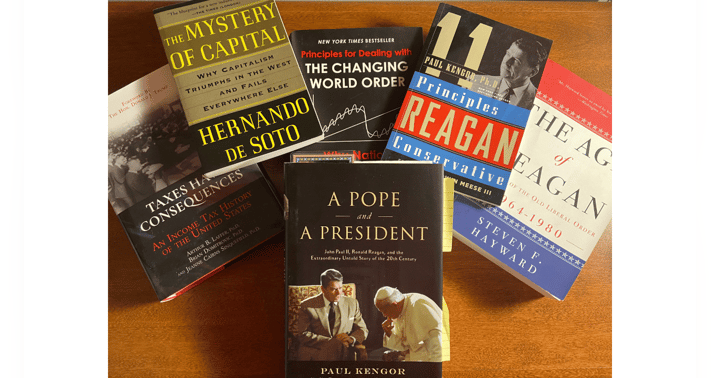The Top 5 Presidential Scandals in American History
American history is filled with stories of leadership, innovation, and progress, but it's also marked by moments of scandal and betrayal. These scandals, particularly those involving the highest office in the land, serve as stark reminders of the potential for abuse of power and the importance of accountability. In this blog post, we'll delve into the top 5 presidential scandals that have rocked the United States, examining their causes, consequences, and lasting impact on our nation's political landscape. This exploration builds upon the themes discussed in our latest podcast episode, The Theory 2 Action Weekend Show--August 3, 2025, where we began to rank and analyze these historical events and set the stage for deeper investigations into contemporary issues. Join us as we uncover the truths behind these infamous episodes in American history.
Ranking the Top 5 Presidential Scandals
Before we dive into the details of each scandal, let's establish our ranking. Determining the "worst" scandal is subjective, as each event has unique circumstances and consequences. However, based on a combination of factors such as the scale of the abuse of power, the impact on public trust, and the long-term political ramifications, here's our list:
- Watergate
- Teapot Dome
- Clinton-Lewinsky
- Credit Mobilier
- Whiskey Ring
Now, let's examine each of these scandals in detail.
Watergate: The Scandal That Toppled a President
Background
Watergate, without a doubt, holds the top spot on our list. This scandal, which unfolded from 1972 to 1974, involved a series of illegal activities orchestrated by President Richard Nixon's administration. It began with a break-in at the Democratic National Committee headquarters at the Watergate Hotel in Washington, D.C., but quickly expanded to encompass a wide range of abuses of power.
The Scandal Unfolds
The initial break-in was intended to gather intelligence and potentially sabotage the Democratic campaign. However, when the burglars were caught, the Nixon administration embarked on a massive cover-up to conceal their involvement. This cover-up included obstruction of justice, perjury, and the use of government agencies to silence critics and suppress evidence.
Consequences and Impact
As investigations by the press, Congress, and the courts progressed, the truth slowly emerged. The release of audio tapes recorded in the Oval Office revealed Nixon's direct involvement in the cover-up. Facing impeachment by the House of Representatives and almost certain conviction by the Senate, Nixon resigned from office in August 1974. The Watergate scandal had a profound impact on American politics, leading to increased skepticism of government and a greater emphasis on transparency and accountability.
Teapot Dome: Oil, Corruption, and Betrayal
Background
The Teapot Dome scandal, which occurred during the administration of President Warren G. Harding in the early 1920s, involved the secret leasing of federal oil reserves to private companies in exchange for bribes. This scandal highlighted the potential for corruption within the executive branch and raised serious questions about the integrity of public officials.
The Scandal Unfolds
Secretary of the Interior Albert Fall was at the center of the Teapot Dome scandal. He secretly leased naval oil reserves at Teapot Dome, Wyoming, and Elk Hills, California, to oil tycoons Harry Sinclair and Edward Doheny without competitive bidding. In return, Fall received substantial bribes from both men.
Consequences and Impact
The Teapot Dome scandal became public in 1922 when the Wall Street Journal reported on the suspicious leases. Congressional investigations followed, leading to Fall's indictment and eventual conviction for accepting bribes. He was the first cabinet member in U.S. history to be convicted of a felony while in office. The Teapot Dome scandal damaged the reputation of President Harding, who died in office before the full extent of the scandal was revealed. It also led to reforms in government oversight and contracting procedures.
Clinton-Lewinsky: Impeachment and National Division
Background
The Clinton-Lewinsky scandal, which dominated headlines in the late 1990s, involved President Bill Clinton's affair with White House intern Monica Lewinsky. While the scandal did not involve direct abuse of presidential power in the same way as Watergate or Teapot Dome, it led to Clinton's impeachment by the House of Representatives and a deeply divisive national debate about morality and leadership.
The Scandal Unfolds
The affair between Clinton and Lewinsky began in 1995 and continued for several years. When allegations of the affair surfaced in 1998, Clinton initially denied them under oath. However, as evidence mounted, including the infamous blue dress stained with Clinton's DNA, he was forced to admit to having an "inappropriate relationship" with Lewinsky.
Consequences and Impact
The House of Representatives impeached Clinton on charges of perjury and obstruction of justice. The Senate held a trial in 1999, but Clinton was acquitted on both counts. Despite surviving impeachment, the Clinton-Lewinsky scandal severely damaged his reputation and left a lasting stain on his presidency. It also sparked a national conversation about the standards of conduct expected of public officials and the role of personal morality in politics.
Credit Mobilier: Railroads and Political Favoritism
Background
The Credit Mobilier scandal, which came to light in 1872, involved widespread corruption in the construction of the Union Pacific Railroad. This scandal revealed how political influence and insider dealing could be used to enrich private companies at the expense of taxpayers.
The Scandal Unfolds
Credit Mobilier was a construction company created by the owners of the Union Pacific Railroad to build the transcontinental railroad. The owners of Credit Mobilier overcharged the Union Pacific for construction work and used the excess profits to bribe members of Congress, including Vice President Schuyler Colfax, to secure favorable legislation and prevent scrutiny of their operations.
Consequences and Impact
The Credit Mobilier scandal was exposed by the New York Sun in 1872. Congressional investigations revealed that numerous members of Congress had accepted bribes in the form of stock in Credit Mobilier. While some of those implicated were censured or forced to resign, the scandal damaged the reputation of the Republican Party and contributed to a loss of public trust in government. It also led to reforms in the regulation of railroads and other industries.
Whiskey Ring: Tax Evasion and Government Conspiracy
Background
The Whiskey Ring scandal, which occurred during the administration of President Ulysses S. Grant in the 1870s, involved a conspiracy among distillers and government officials to defraud the federal government of excise taxes on whiskey. This scandal highlighted the pervasive corruption that plagued the Grant administration and raised serious questions about the integrity of government revenue collection.
The Scandal Unfolds
The Whiskey Ring operated in St. Louis and other major distilling centers. Distillers bribed Treasury officials to underreport the amount of whiskey they produced, allowing them to evade paying excise taxes. The money saved was then split between the distillers and the corrupt officials.
Consequences and Impact
The Whiskey Ring scandal was exposed in 1875 when Treasury Secretary Benjamin Bristow launched an investigation into tax evasion. The investigation revealed that hundreds of government officials were involved in the conspiracy, including Grant's personal secretary, Orville Babcock. While Grant was not directly implicated in the scandal, his close association with those involved damaged his reputation. The Whiskey Ring scandal led to reforms in the Treasury Department and increased scrutiny of government revenue collection.
A Potential New Scandal: Declassified Information and a Nine-Year Presidential Coup Attempt
While the scandals we've discussed are firmly rooted in history, recent developments suggest the potential for a new scandal of unprecedented magnitude. As mentioned in our recent podcast episode, declassified information has come to light that suggests a possible nine-year presidential coup attempt. This alleged plot involves individuals at the highest levels of government and, if true, would represent a grave threat to American democracy.
Authors such as Lee Smith and Greg Jarrett have been documenting these developments in real-time, providing valuable insights into the potential scope and implications of this alleged coup attempt. We plan to delve deeper into this issue in future episodes of our podcast, meticulously examining the evidence and exploring the potential consequences for our nation.
The details surrounding this potential scandal are complex and still unfolding. However, the allegations involve a coordinated effort to undermine the presidency through various means, including leaking classified information, manipulating intelligence, and obstructing justice. If these allegations are proven true, they would represent a betrayal of public trust and a grave assault on the foundations of our government.
Conclusion: Engage With Us: Share Your Feedback and Join the Conversation
The presidential scandals we've examined in this blog post serve as cautionary tales, reminding us of the potential for abuse of power and the importance of vigilance in safeguarding our democracy. From Watergate to the Whiskey Ring, these events have left a lasting impact on American politics and continue to shape our understanding of leadership and accountability.
As we discussed in our latest podcast episode, The Theory 2 Action Weekend Show--August 3, 2025, these historical scandals provide valuable context for understanding contemporary issues, including the potential new scandal involving declassified information and a nine-year presidential coup attempt. By learning from the past, we can better protect our democracy in the present and future.
We encourage you to engage with us and share your thoughts on these important topics. What lessons do you think we can learn from these presidential scandals? Do you have any insights or perspectives to share on the potential new scandal we discussed? We welcome your feedback and invite you to join the conversation.
You can leave a review for the podcast here







